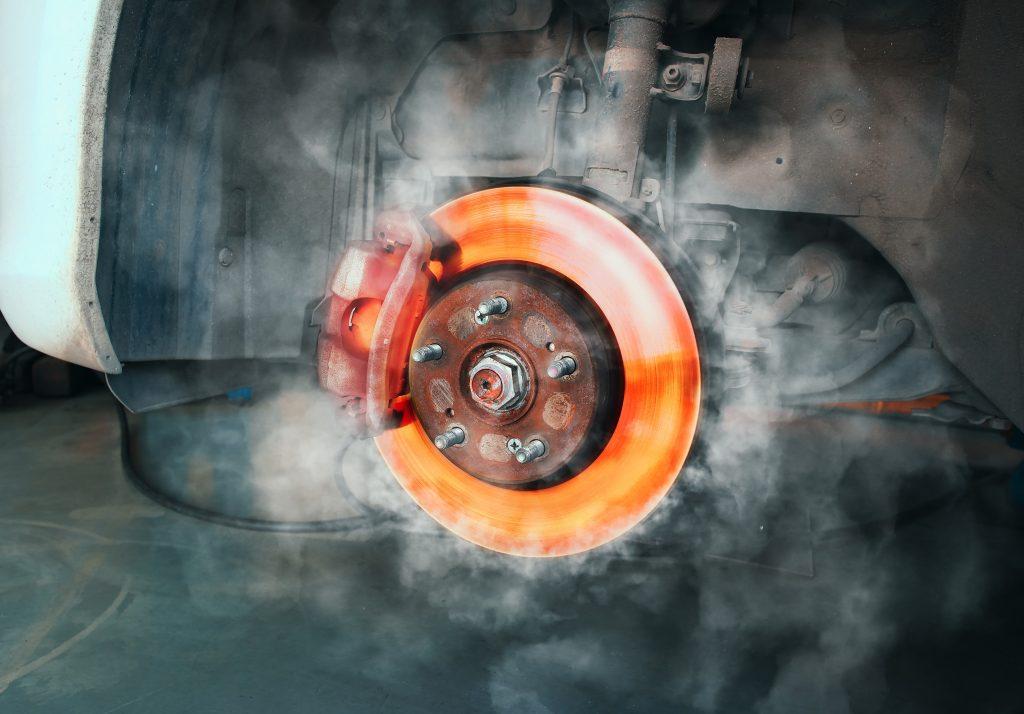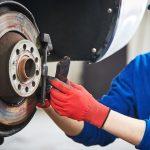
Urgent Warning: The Grave Dangers of Skipping Regular Brake Maintenance
- Harbor Brakes
- January 3, 2024
- Brakes
- brake caliper, brake disc, brake pads, brake repair, brake repair near me, brake replacement near me, brake rotors, brake service near me, brakes, brakes near me, pads, rotors
As a responsible driver, you’re likely aware of the importance of keeping your vehicle in top condition. One critical aspect of vehicle maintenance that you shouldn’t overlook is the brake system. While it may seem like a hassle to schedule regular brake service or repair, neglecting your brakes can lead to significant safety risks and costly repairs down the line.
Regular brake maintenance is essential to ensure optimal performance and safety on the road. If your brake system isn’t functioning correctly, you may experience reduced braking performance, vibrations, or even complete brake failure. Not only can this put you and your passengers in harm’s way, but it can also lead to costly repairs that could have been avoided with consistent brake maintenance.
To prioritize your driving safety and avoid unnecessary expenses, it’s crucial to schedule regular brake maintenance with a reliable brake specialist or shop. By maintaining your brake system, you can rest assured that your vehicle will be in optimal condition when you need it most.
Key Takeaways
- Regular brake maintenance is essential for driving safety and preventing costly repairs.
- Neglecting your brakes can lead to reduced braking performance, vibrations, or even complete brake failure.
- Don’t overlook brake maintenance – schedule regular brake service with a reliable specialist or shop.
- By prioritizing your brake system’s maintenance, you can avoid expensive repairs down the line.
- Ensure your vehicle is in optimal condition when you need it most by maintaining your brake system.
Understanding the Brake System Components
Brakes are an essential safety feature in any vehicle. Understanding the different components of the brake system can help you recognize potential issues and take action before they become major problems.
The brake system components include:
| Component | Function |
|---|---|
| Brake Pads | Press against the rotor to slow or stop the vehicle |
| Rotors | Spin with the wheel and are pressed by the brake pads to slow or stop the vehicle |
| Calipers | Hold the brake pads and move them into place against the rotors when you apply the brakes |
| Brake Fluid | Transfers the force from the pedal to the brake calipers to activate the braking system |
Over time, brake pads wear down and need to be replaced. Worn pads can damage the rotors, which can be expensive to repair or replace. A brake caliper can also bind or stick, causing uneven wear on the brake pads and rotors. Low brake fluid levels can impact braking performance and even lead to a complete brake failure.
Regular brake maintenance, such as brake inspections and fluid flushes, can help prevent these issues and ensure optimal brake function. Remember, the safety of you and your passengers depends on the condition of your brakes. Don’t overlook brake maintenance – it’s a critical aspect of responsible vehicle ownership.
Signs of Brake Wear and When to Seek Brake Service
Regular brake maintenance is crucial for ensuring the safety and reliability of your vehicle. Knowing the common signs of brake wear can help you catch problems early and prevent costly repairs down the line. Here are some signs to look out for:
- Squeaking or grinding noises when you apply the brakes
- Vibration or pulsation in the brake pedal or steering wheel
- Reduced braking performance or increased stopping distance
If you notice any of these signs, it’s essential to schedule a brake inspection as soon as possible. A brake specialist can diagnose the issue and recommend the necessary brake service, which may include brake replacement or repairs.
It’s also important to schedule regular brake inspections even if you haven’t noticed any signs of brake wear. A professional brake service can catch potential problems early and prevent costly repairs in the future.
When it’s time to seek brake service, it’s important to find a reliable brake specialist or brake shop near you. Look for a professional brake service that offers quality workmanship and uses only top-quality parts to ensure the safety and reliability of your brakes. You can search online for “brake service near me” or ask for recommendations from friends or family.
“Regular brake inspections are essential for keeping your vehicle safe and preventing costly repairs. Catching brake problems early can save you time, money, and hassle down the line.”
The Importance of Brake Fluid and Brake Flush
Brake fluid is a crucial component in your vehicle’s brake system, as it transmits force to activate the brake calipers and pads, enabling you to stop your vehicle. Over time, brake fluid can become contaminated with water, which reduces its effectiveness and can cause corrosion in the brake lines. That’s why regular brake fluid checks and brake flushes are essential for maintaining optimal brake function and preventing potential issues down the line.
When you bring your vehicle in for brake service, your mechanic will inspect the brake fluid and determine if a brake flush is necessary. During a brake flush, all of the old fluid is removed, and new fluid is flushed through the system to restore its effectiveness. The process may vary depending on the type of brake fluid and vehicle make and model.
The Importance of Brake Flush
The brake flush process involves removing all of the old fluid and flushing new fluid through the entire brake system. This is beneficial for several reasons:
- Prevents corrosion: Old, contaminated brake fluid can cause corrosion in the brake lines, leading to potential leaks or brake failure.
- Maintains brake function: Fresh brake fluid maintains adequate pressure in the system, ensuring optimal brake performance and faster stopping times.
- Extends the life of your brake system: Routine brake fluid maintenance can extend the life of your brake pads, rotors, and other brake components, meaning less frequent brake repairs and replacements down the line.
Regular Brake Fluid Checks
In addition to brake flushes, regular brake fluid checks can help identify potential issues before they become major problems. Your mechanic will check the color, consistency, and level of your brake fluid during a routine brake inspection. If your brake fluid is low or appears discolored, this may indicate a problem with your brake system that needs to be addressed immediately. Neglecting to address brake fluid issues can be costly and compromise your vehicle’s safety.
“Regular brake fluid checks and brake flushes are essential for maintaining optimal brake function and preventing potential issues down the line.”
Ultimately, taking care of your brake system means regularly checking your brake fluid and scheduling brake flushes as needed. By doing so, you’ll maintain optimal brake function and ensure the safety of your driving experience down the road.
The Importance of Consistent Brake Maintenance
Regular brake maintenance is crucial to ensure the safety of your driving experience and prevent costly repairs down the line. By addressing brake pads, rotors, fluid, and seeking professional brake service, you’ll have peace of mind knowing your brakes are in optimal condition.
Brake pads and rotors are essential components of the brake system, and wear and tear on these parts can lead to reduced braking performance and potential safety hazards. By scheduling regular brake inspections and addressing signs of wear and tear promptly, you can prevent further damage to your brake system and ensure optimal driving safety.
Brake fluid is equally important to the brake system’s function, and regular checks and flushes are necessary to maintain optimal performance. Over time, brake fluid can become contaminated, leading to potential issues such as reduced stopping power and even brake failure. By including brake fluid checks and flushes in your brake maintenance routine, you’ll prevent costly repairs and ensure driving safety.
Don’t overlook brake maintenance as a critical aspect of responsible vehicle ownership. By prioritizing brake service and maintenance, you’re not only ensuring your safety but also avoiding potential expenses down the line. Remember, your brakes are your vehicle’s most essential safety feature, so make sure to prioritize their upkeep.
FAQ
Why is regular brake maintenance important?
Regular brake maintenance is important because it ensures the safety of your driving experience. By maintaining your brake system, you can prevent costly repairs and potential accidents.
What are the components of the brake system?
The brake system includes several components, such as brake pads, rotors, calipers, and brake fluid. Understanding how these parts work together is essential for proper maintenance.
What are the signs of brake wear?
Signs of brake wear include squeaking or grinding noises, vibration, and reduced braking performance. If you notice any of these signs, it’s crucial to seek professional brake service or inspection.
How often should I seek brake inspections?
It’s recommended to schedule regular brake inspections at least once a year or every 12,000 miles. However, if you experience any unusual symptoms or noticeable changes in your brake performance, it’s advisable to seek immediate inspection.
When should I replace my brake pads?
Brake pads should be replaced when their thickness reaches a minimum level, typically indicated by a wear indicator. However, it’s always best to consult a brake specialist or technician to determine the appropriate time for brake pad replacement.
What is a brake flush, and why is it important?
A brake flush involves removing old brake fluid from the system and replacing it with fresh fluid. It’s important because it helps maintain optimal brake performance, prevents fluid contamination, and prolongs the lifespan of brake components.
How do I find a reliable brake specialist or brake shop near me?
To find a reliable brake specialist or brake shop near you, consider asking for recommendations from friends, family, or your trusted mechanic. You can also read online reviews and check for certifications or affiliations with reputable organizations.
Can I perform brake maintenance myself?
While some basic brake maintenance tasks can be performed at home, it’s generally recommended to seek professional brake service. Brake systems are complex, and improper maintenance can lead to safety risks and further damage to your vehicle.



